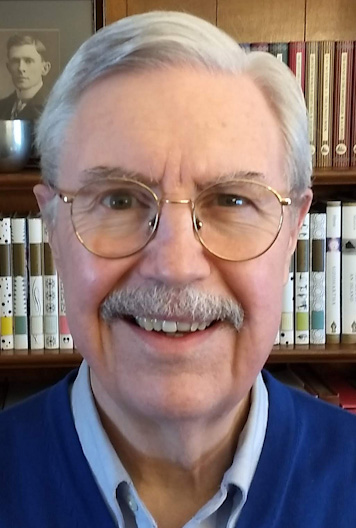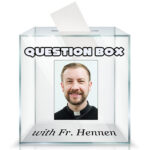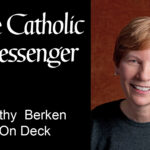By Timothy Walch
Catholicism is a threat to American democracy! That was a claim spread by Lyman Beecher and many Americans back in 1835. In fact, Beecher warned his fellow citizens that the pope and his Jesuit army were plotting to establish a new Vatican in Cincinnati!

Beecher was no crackpot. In fact, he was one of the most respected church leaders of his day and his charges unsettled the country. Be concerned, the American people were told, about those foreigners infesting their cities.
Fast forward to 2021. If Beecher were living today, he would find Catholics serving as President of the United States, Speaker of the House of Representatives, and Chief Justice of the United States. No doubt, he would have feared for the fate of the country.
But wait; it’s even worse than Beecher might have feared. A third of President Joe Biden’s cabinet, two-thirds of the Supreme Court, close to a third of the House, and a quarter of the Senate are also Catholic. For Beecher and the many Americans living in the years before the Civil War, such a scenario would be a nightmare!
Of course, Beecher’s fear was ridiculous and Catholics gradually became central figures in the American political establishment over the next century. They came to serve with honor and dignity in Congress, in presidential cabinets and on the Supreme Court. Their numbers were small but significant. Catholics were enthusiastic about participating in American government even if the Protestant majority remained wary of their loyalty.
As the number of Catholics in the country increased in the 20th century, so also did the number of Catholics in government. Presidents Theodore Roosevelt and Franklin Roosevelt regularly and openly consulted Catholic Church leaders about moral and social justice issues.
However, Catholics were token members of the American political establishment until the election of President John F. Kennedy in 1960. His iconic presidency led to an exceptional growth in the number of Catholics entering public service. The number of Catholics in elected office has increased by 50 percent since 1960.
Biden has taken his faith to a new visibility in public life. In fact, he is a regular at weekly Mass and often prays the rosary as a form of meditation. “He’s never far from prayer,” notes Denis McDonough, “which is the sign of an empathetic leader.” McDonough served as chief of staff to former President Barack Obama and is Biden’s Secretary of Veteran’s Affairs.
A common faith has not meant that all Catholics share policy positions. It’s hard to imagine, for example, that a conservative Republican such as Christopher Smith of New Jersey could ever embrace any of the views of a liberal Democrat such as Alexandria Ocasio-Cortez of New York. It’s a given that Catholics have one of the biggest tents in Congress.
Even the six Catholic justices on the Supreme Court reflect a diversity of opinions from staunchly conservative to progressively liberal. Chief Justice John Roberts often finds himself between these two groups of Catholics on the court.
Not surprisingly, the U.S. Conference of Catholic Bishops also has spoken out on issues of political concern. “We commit ourselves,” they wrote in 2004, “to maintain communication with public officials who make decisions every day that touch issues of human life and dignity.”
So, what is the link between Catholicism and democracy? “The most fundamental concept of the Catholic religion,” stresses Congressman Tom Suozzi of New York, “is to find the common good, to serve the common good. That’s what politics really should be about, to serve the common good.”
Lyman Beecher and his fellow nativists can rest easy — Catholicism was never a threat to democracy. In fact, religious faith offers vision and resonance to the complex nature of the decision-making. On that point, Catholics agree with one another and with their fellow American citizens of all faiths. Serve the common good; it’s just that simple.
(Timothy Walch is a lay director of St. Thomas More Parish in Coralville and a member of the Board of Directors of The Catholic Messenger.)











